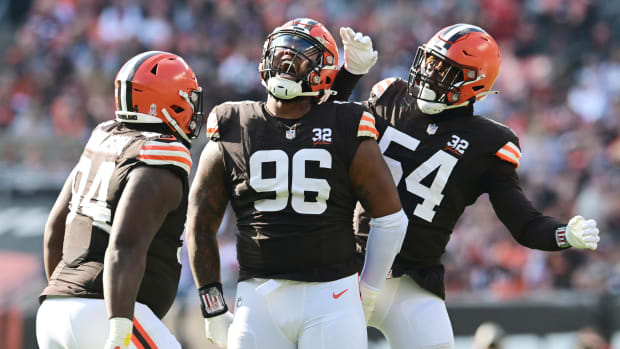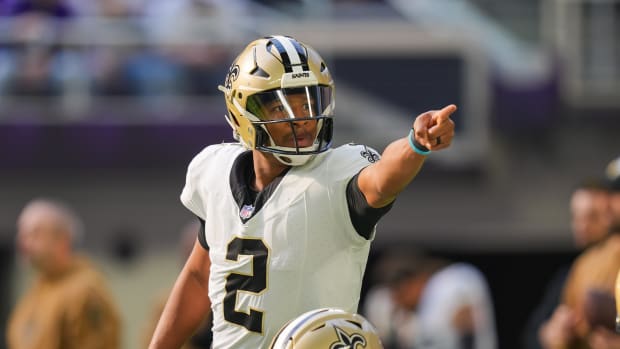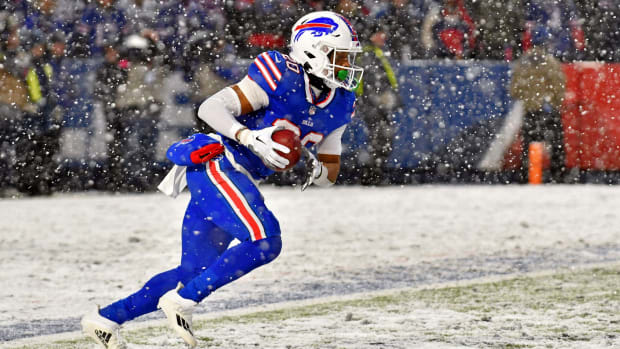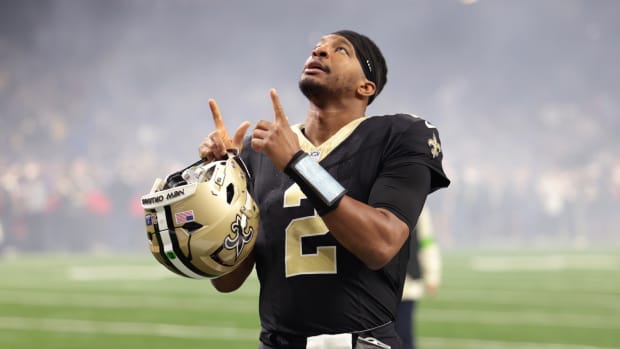The Lack of Equity in the NFL Mirrors Problems in Society
The National Football League has failed to separate itself from the same systematic problems that are prominent in institutions across the United States.
There are obvious systemic inequalities within governmental policies, law enforcement, educational networks, prison pipelines, and socioeconomic classes. The foundations of this country have showcased various instances of racism, racial discrimination, and minority prejudice. The latest act of racial injustice committed by former Minneapolis police officer Derek Chauvin resulted in the killing of 46-year-old George Floyd.
A filmed incident that literally showcased Floyd’s last breath triggered protests around the world vocalizing frustration with police brutality taking the life of another innocent black male. The injustices disseminated across different media channels highlights that this is fundamentally a Human Rights issue. Peaceful protests alongside violent riots and looting across the country are similar circumstances to the events in Ferguson, Missouri after the death of black teenager Mike Brown in 2014. During that time with a city showcasing its outrage, the NFL remained relatively silent on the issue of police brutality until the activism of Colin Kaepernick a couple years later.
In 2016, Kaepernick utilized his international platform to peacefully protest the social injustices of police brutality. He did so by kneeling during the national anthem of every game to bring attention to the issue. Soon after Kaepernick was interviewed in the locker room about the reasons of his protests, but the emphasis was quickly redirected to how his protest was demonstrated. Media outlets, NFL owners, and fans vocalized their dissatisfaction toward Kaepernick’s decision to kneel during the nation anthem.
The sole focus for critics was how his protest somehow disrespected the American flag and individuals claimed they would boycott the NFL by refusing to attend or watch games. For months discussions focused on Kaepernick’s mode of peaceful protest rather than the social issues for which he fought.
The same lack of empathy was demonstrated Wednesday as Drew Brees said, “I will never agree with anybody disrespecting the flag of the United States of America or our country,” when asked about NFL players kneeling again this season. Brees’s comment does not show support of the issues that is currently tearing our country apart and deflects attention to a matter that was never intentional from Kaepernick or any player that kneeled. Brees later released a statement on Instagram apologizing to his teammates, the city of New Orleans and the black community.
Prejudice enacted upon Kaepernick resulted in him being effectively blackballed by the NFL. Then to further discount his protest, NFL owners declared a motion to require players to stand for the national anthem or remain in the locker room. A protest meant to provide a voice for the voiceless was misconstrued and indefinitely silenced by the NFL.
As written by fellow author Pete Smith, “Kaepernick was a threat not for what he was saying, but for what he was doing. He was taking control, and the NFL was powerless to stop him in the moment.” A reason the NFL has been unable to remove themselves from the same systematic problems of modern-day society is because they still benefit from the same standards of control rather than the implementation of equity.
NFL owners are typically billionaires that have held complete control of any entity they are related to and those in power are usually not comfortable with sacrificing their privileges. The current front office structure of the NFL is a direct representation of inequality and a misrepresentation of its actual labor force. Out of 32 NFL franchises, only two teams have black general managers—Chris Grier of the Miami Dolphins and newly hired Andrew Berry of the Cleveland Browns. Sadly, the representation is also inadequate within the coaching staff with only three black head coaches and two black offensive coordinators. Making matters worse there is a lack of efficiency to improve black representation in those positions because the pipeline for vacancies is largely skewed toward white candidates.
The NFL attempts to pride itself on the equality of opportunity it offers to minorities, but that same naive self-praise is what promotes its detrimental nature. Ignorance of this flawed system is further stated by the recent words of Denver Broncos head coach Vic Fangio. In a press conference call Fangio stated, “I don’t see racism at all in the NFL, I don’t see discrimination in the NFL […] if society reflected an NFL team, we’d all be great.” For a head coach to say something so insensitive, it just highlights the ignorance toward the reality of blacks within the NFL and in general society. Fangio later released a statement reflecting on his comments and acknowledged what he said was wrong.
The statement was inaccurate from the start when players such as Richie Incognito and former Philadelphia Eagles receiver Riley Cooper were openly criticized and recorded using racial slurs. Former player Martellus Bennett, who has been vocal about various topics while in the NFL, addressed the discrimination toward black coaches and players after Fangio’s comments. Bennett stated, “The difference is that [the NFL] need the black players to make the league work they don’t need the black coaches in order for it to work.” Quality black candidates have been passed over multiple times for unproven white candidates and it is the owner’s choice to hire who they wish. How can individuals of color expect equitable opportunities when the decision makers do not look like them?
Yet, the biggest issue of Fangio’s statement is the reflection of the NFL in society, because both the NFL and societal institutions reflect a lack of equity for minorities. The NFL has been constantly criticized for its minimalistic equitable approach toward improving advancement opportunities for minority candidates. Implementation of the Rooney Rule is a direct example of the NFL recognizing its shortcomings for this matter. Even with the changes that organizations must now interview two minority candidates it did not make the process any more equitable.
Then an embarrassing effort was made to promote more equity within the system by submitting a proposal to incentivize franchises for hiring minority candidates. Incentives included improving draft stock for a team based on the hiring and longevity of having a minority head coach or general manager. The proposal was insulting because a minority was not given a more equitable opportunity, but the franchise would benefit from incentives of hiring minority candidates. For myself it felt as if minorities were not viewed as equal enough to be given an opportunity justly but instead here is a reward for doing what should be done in the first place. There has never been a request from minorities for special privileges and the only thing that is being demanded is equity.
The difference between equality and equity is how support and resources are distributed. Equality in the NFL is that everyone is given the exact same resources without reference of background. The Rooney Rule attempts to promote equality amongst candidates but misses the mark. An issue that arises with only having equality is that the system in place provides access to resources disproportionately to others that need different forms of access.
The simplest way of understanding this issue is to analyze the coaching searches of the past five years. There has been a strong correlation of talented offensive coordinators receiving head coaching offers because of the impact offense has on the modern-day game. In essence, an offensive coordinator has an inside track of becoming a head coach based on recent history.
All candidates are provided equality when offered an interview, yet those coordinators have a slight advantage based on history. As mentioned previously, there are only two black offensive coordinators in the NFL and if these coordinator positions are largely influential in filling vacancies, then minority representation must improve. Equity in the NFL would be grooming individuals for positions that could eventually lead to promotions within the coaching staff or front office given that individual is qualified.
The protests happening around the globe are demanding equity and basic human rights for minorities. Players and coaches in the NFL want that same equity and not only do they lack it in there workplace, but they must also endure injustices in everyday life. Although it is entertainment for many and business for others, the NFL is another institution within society that fails to provide equity for its majority. In order to be equitable both society and the NFL must support the oppressed and acknowledge the privileges it gives to some but denies to others.




